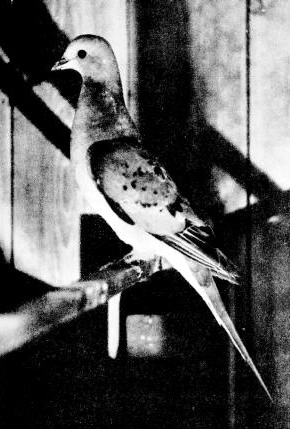There aren’t many things that can kill most of the life on Earth, though there are some (climate change for one) that can claim a heartbreaking part of it.
Recent discussion about the existential threat of global warming has led Stewart Brand to fret that perhaps all these apocalyptic daydreams may be stunting the progress of conservationists. He contends in a new Aeon essay that there’s no onrushing Sixth Extinction, as it’s been called, and though he acknowledges great concern for defaunation and ecosystem functioning, he believes humans will act with drastic measures if necessary before we bury ourselves in a global Easter Island. He further argues that biotech might allow us to reverse species endangerment and increase biodiversity.
It’s a great piece, the kind Aeon spoils us with regularly. While I agree climate change isn’t likely to extinct all of Homo sapiens in the foreseeable future, even in a century or two, it could possibly reduce population with a viciousness. Brand’s gut feeling aside, there’s no guarantee we’ll make intelligent political decisions to protect our tomorrow and that of other fauna and flora. We certainly haven’t demonstrated such big-picture fortitude yet. And bioengineering our way out of trouble means plenty of unintended consequences, no matter how careful we are. Aggressive environmentalism and conservation is still the key, which is something I imagine Brand would concur with.
From Brand:
Anyone who doubts the reality of global warming need only talk to a few field biologists. Everyone doing field research is discovering how sensitive the organisms they study are to slight changes in average temperature, in the length of the growing season, in rainfall patterns. But just because organisms are sensitive to change doesn’t mean they are threatened by it. Any creature or plant facing a shifting environment has three choices: move, adapt or die. …
Move, adapt or die. When organisms challenged by climate change respond by adapting, they evolve. When they move, they often encounter distant cousins and hybridise with them, sometimes evolving new species. When they die, they leave a niche open for other species to migrate or adapt into, and a warming climate tends to open the way for more species rather than fewer. In the same Nature essay, Thomas wrote: ‘Global-diversity gradients dictate that more warm-adapted species are available to colonise new areas than cold-adapted species retreating from those areas as the climate warms.’
Throughout 3.8 billion years of evolution on Earth, the inexorable trend has been toward an ever greater variety of species. With the past two mass extinction events there were soon many more species alive after each catastrophe than there were before it.
There is no reason to be sanguine about climate change. It is the most serious problem currently facing humanity and nature. It might lead to the loss of some species that we lament greatly, but it will also usher in new species, and unless there is extremely ‘abrupt’ climate change, net biodiversity is unlikely to decrease dramatically. Abrupt-change scenarios have been dropping out of the climate models lately, thanks to ever-improving data and growing knowledge about climate dynamics. My own prediction is that climate change will be deemed intolerable for humans long before it speeds up extinction rates, and even if radical steps have to be taken to head it off, they will be taken.•
Tags: Stewart Brand

